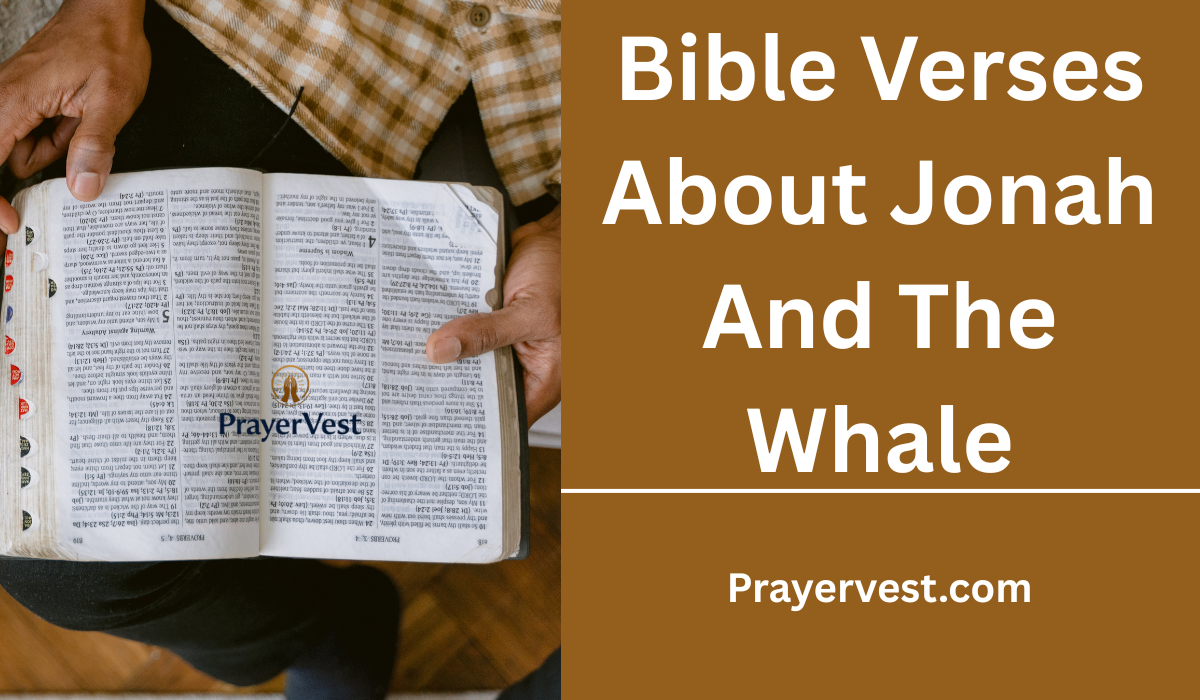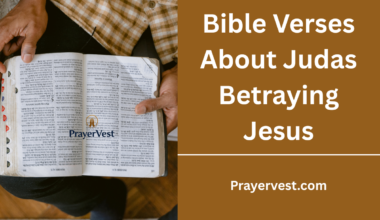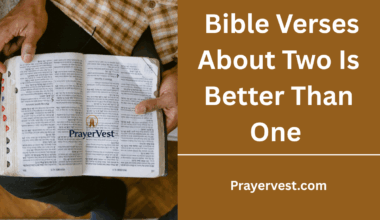One of the Bible’s most enduring and significant tales is that of Jonah and the whale. A prophet who tried to elude God’s order was caught in a storm, swallowed by a large fish, and eventually returned to his assignment, according to the Book of Jonah.
Themes of obedience, repentance, divine mercy, and the limitless reach of God’s love abound in this dramatic tale, which is more than just an amazing incident. Jonah’s trip serves as an example of how God’s plan for our lives never changes, no matter how hard we attempt to run.
The story of Jonah and the whale is a spiritual mirror for believers today, even beyond its miraculous aspects. The enormous fish symbolizes God’s kindness and discipline working together, while Jonah depicts humanity’s battle with pride, fear, and resistance to accepting God’s plan.
Jonah screams out in prayer as he realizes how dependent he is on God while within the whale’s belly. The transformational power of repentance and God’s willingness to restore us when we humble ourselves before Him are both reflected in this moment of surrender.


Because Jesus Christ used Jonah’s three days in the fish’s belly as a premonition of His own death and resurrection, the story also alludes to a deeper truth that was realized in Him. The story thus transcends its historical setting and becomes a symbol of salvation for all people. We can learn about second chances, God’s unrelenting search for the lost, and the need to show others the same grace that we have received by examining Bible passages concerning Jonah and the whale.
40 Inspiring Bible Verses About Jonah And The Whale (2026)
1. Jonah 1:2
“Go to the great city of Nineveh and preach against it, because its wickedness has come up before me.”
God’s command to Jonah is clear and direct. He is chosen as a messenger to confront Nineveh’s corruption. Yet Jonah hesitates, showing the human tendency to resist God’s calling when it seems difficult or uncomfortable. This verse emphasizes the weight of divine instruction and the responsibility that comes with being entrusted with God’s word. It also reminds us that God’s concern extends to all nations, not just Israel, showcasing His universal justice and mercy.
2. Jonah 1:3
“But Jonah ran away from the Lord and headed for Tarshish. He went down to Joppa, where he found a ship bound for that port. After paying the fare, he went aboard and sailed for Tarshish to flee from the Lord.”
Jonah’s attempt to flee from God reveals the futility of trying to escape divine will. Instead of obedience, he chooses self-preservation, boarding a ship to Tarshish—the opposite direction of Nineveh. This verse highlights human rebellion and fear in the face of divine assignments. It teaches that running from God’s will only leads to turmoil, not peace, for His purpose cannot be thwarted by human plans.
3. Jonah 1:4
“Then the Lord sent a great wind on the sea, and such a violent storm arose that the ship threatened to break up.”
God’s sovereignty is revealed through the storm He sends to halt Jonah’s escape. The storm symbolizes divine intervention, a reminder that God will often disrupt our comfort to draw us back to His will. This verse shows how creation itself responds to God’s command, emphasizing His power over both nature and human affairs. It reminds us that disobedience often stirs up storms in our lives until we return to the path of obedience.
4. Jonah 1:15
“Then they took Jonah and threw him overboard, and the raging sea grew calm.”
This pivotal moment demonstrates the link between Jonah’s disobedience and the storm. The sailors, after reluctantly following Jonah’s advice, throw him into the sea—and immediately the storm ceases. The calming of the sea reflects God’s mercy and control, showing that obedience, even when painful, restores peace. It also reveals how one person’s choices can affect an entire community, for better or worse.
5. Jonah 1:17
“Now the Lord provided a huge fish to swallow Jonah, and Jonah was in the belly of the fish three days and three nights.”
The great fish is not a punishment but a provision. Instead of letting Jonah perish in the sea, God appoints the creature as a vessel of preservation. The three days and nights foreshadow the resurrection of Christ, making this one of the most symbolic verses in Scripture. It teaches that even in our darkest places, God provides refuge and uses extraordinary means to bring us back to His purpose.
6. Jonah 2:1
“From inside the fish Jonah prayed to the Lord his God.”
This verse shifts the narrative from Jonah’s flight to his repentance. In the depths of the fish’s belly, Jonah turns to prayer, showing that even in the lowest places, communion with God is possible. The verse highlights the transformative power of prayer during suffering. It reminds us that desperation can become the doorway to devotion, and that no place is too dark for God to hear our cries.
7. Jonah 2:2
“In my distress I called to the Lord, and he answered me. From deep in the realm of the dead I called for help, and you listened to my cry.”
Jonah acknowledges God’s responsiveness to prayer even in the most hopeless circumstances. His imagery of “the realm of the dead” conveys despair, yet God’s ear remains attentive. This verse testifies to the relentless mercy of God and offers hope to all who feel trapped by circumstances or guilt. It assures us that God not only hears but answers when we call out in faith.
8. Jonah 2:6
“To the roots of the mountains I sank down; the earth beneath barred me in forever. But you, Lord my God, brought my life up from the pit.”
Here, Jonah poetically describes his near-death experience under the sea, emphasizing how close he came to destruction. Yet, he acknowledges God’s saving hand. This verse is a powerful reminder that God rescues us from pits—both literal and spiritual. It teaches us to remember that no matter how deep our despair, His mercy can lift us up.
9. Jonah 2:9
“But I, with shouts of grateful praise, will sacrifice to you. What I have vowed I will make good. I will say, ‘Salvation comes from the Lord.’”
Jonah ends his prayer with repentance and a declaration of God’s saving power. His words reflect a heart transformed by gratitude and humility. This verse is a timeless proclamation that salvation belongs to God alone, not human effort. It calls us to surrender pride, fulfill our promises to Him, and give Him the glory due His name.
10. Jonah 2:10
“And the Lord commanded the fish, and it vomited Jonah onto dry land.”
God’s authority extends even to the sea creature. At His command, Jonah is released from confinement and restored to life on land. This moment illustrates both God’s sovereignty and His mercy, offering Jonah a second chance to obey. It teaches us that while discipline may be severe, it is always aimed at restoration, not destruction. With God, deliverance often follows repentance.
11. Jonah 3:1
“Then the word of the Lord came to Jonah a second time.”
This verse highlights God’s patience and mercy. Despite Jonah’s initial disobedience, the Lord gives him another chance to fulfill his mission. It reminds us that God is not quick to cast us aside when we fail but is willing to restore and recommission us. This is a powerful encouragement for anyone who feels disqualified by past mistakes—God’s call can still be renewed.
12. Jonah 3:2
“Go to the great city of Nineveh and proclaim to it the message I give you.”
God repeats His original instruction, emphasizing obedience to His specific command. Jonah is not sent with his own words or ideas but with the message of the Lord. This verse reminds us that true ministry is not about human wisdom or persuasion but about faithfully declaring God’s truth. His word carries authority and power to transform even the hardest hearts.
13. Jonah 3:3
“Jonah obeyed the word of the Lord and went to Nineveh. Now Nineveh was a very large city; it took three days to go through it.”
Jonah’s obedience marks a turning point in the story. Though once reluctant, he now walks in the path God set before him. Nineveh’s vast size emphasizes the enormity of Jonah’s mission, but his obedience proves that when God sends us, He equips us. This verse encourages us to act in faith, even when the task seems overwhelming, trusting that God will accomplish His will through us.
14. Jonah 3:5
“The Ninevites believed God. A fast was proclaimed, and all of them, from the greatest to the least, put on sackcloth.”
This verse reveals the astonishing power of God’s word. At Jonah’s preaching, an entire city—known for its wickedness—repents. The people respond with humility, fasting, and mourning for their sins. It demonstrates that no one is beyond the reach of God’s mercy. This verse inspires us to trust in the power of God’s word to bring transformation to even the most unlikely places.
15. Jonah 3:10
“When God saw what they did and how they turned from their evil ways, he relented and did not bring on them the destruction he had threatened.”
This verse captures the heart of God’s mercy. The repentance of Nineveh leads to forgiveness, showing that God responds to sincere humility and change. It highlights the conditional nature of divine judgment—God’s ultimate desire is not destruction but restoration. This verse reassures us that no matter how far we’ve strayed, repentance opens the door to God’s compassion and grace.
16. Jonah 4:1
“But to Jonah this seemed very wrong, and he became angry.”
Despite the miraculous repentance of Nineveh, Jonah is displeased. His anger reveals the human struggle with God’s mercy, especially when it extends to those we may consider undeserving. This verse reminds us that God’s grace often challenges our sense of justice. It teaches us to align our hearts with God’s compassion rather than holding onto resentment.
17. Jonah 4:2
“He prayed to the Lord, ‘Isn’t this what I said, Lord, when I was still at home? That is what I tried to forestall by fleeing to Tarshish. I knew that you are a gracious and compassionate God, slow to anger and abounding in love, a God who relents from sending calamity.’”
Jonah acknowledges God’s merciful nature, but instead of rejoicing, he complains. His words highlight the paradox of knowing God’s character yet resisting its implications. This verse reveals the tension between human bitterness and divine compassion. It challenges us to celebrate God’s mercy, even when it extends to our enemies.
18. Jonah 4:3
“Now, Lord, take away my life, for it is better for me to die than to live.”
Jonah’s despair over Nineveh’s forgiveness shows how deeply he wrestles with God’s plan. His exaggerated reaction demonstrates how selfishness can distort our view of God’s mercy. This verse cautions us against letting pride or personal grievances blind us to the goodness of God. Instead, we are called to rejoice in His love for all people.
19. Jonah 4:4
“But the Lord replied, ‘Is it right for you to be angry?’”
God’s gentle question to Jonah exposes the heart of the issue. Instead of rebuking Jonah harshly, He invites him to reflect on his attitude. This verse highlights God’s patience, teaching us that He engages us with questions that challenge our hearts and lead us toward self-examination.
20. Jonah 4:6
“Then the Lord God provided a leafy plant and made it grow up over Jonah to give shade for his head to ease his discomfort, and Jonah was very happy about the plant.”
God provides Jonah with shade, showing His kindness even when Jonah’s attitude is wrong. This small act of mercy demonstrates God’s care for His servant’s physical needs while also setting the stage for a greater lesson. The verse illustrates how God often teaches us through life’s comforts and inconveniences, revealing our true priorities.
21. Jonah 4:7
“But at dawn the next day God provided a worm, which chewed the plant so that it withered.”
Just as God provided the plant, He also provides the worm. This act symbolizes the fleeting nature of earthly comforts and how God can use both blessings and losses to shape our hearts. The verse challenges us to hold loosely to temporary things and focus on God’s eternal purposes.
22. Jonah 4:8
“When the sun rose, God provided a scorching east wind, and the sun blazed on Jonah’s head so that he grew faint. He wanted to die, and said, ‘It would be better for me to die than to live.’”
Jonah’s frustration grows as God removes his comfort. His repeated desire for death reflects a heart resistant to God’s lesson. This verse highlights the danger of clinging to self-pity rather than embracing God’s will. It reminds us that trials often expose what we truly value.
23. Jonah 4:9
“But God said to Jonah, ‘Is it right for you to be angry about the plant?’ ‘It is,’ he said. ‘And I’m so angry I wish I were dead.’”
Jonah’s exaggerated response reveals his misplaced priorities—he cares more for a plant than for an entire city of people. God’s question exposes Jonah’s distorted sense of justice and compassion. This verse teaches us to evaluate whether our frustrations reflect God’s heart or simply our own selfish desires.
24. Jonah 4:10
“But the Lord said, ‘You have been concerned about this plant, though you did not tend it or make it grow. It sprang up overnight and died overnight.’”
God points out the temporary and trivial nature of Jonah’s concern. His words reveal the contrast between Jonah’s misplaced compassion and God’s eternal perspective. This verse teaches us to value what God values—souls, not fleeting comforts.
25. Jonah 4:11
“And should I not have concern for the great city of Nineveh, in which there are more than a hundred and twenty thousand people who cannot tell their right hand from their left—and also many animals?”
The book of Jonah ends with God’s rhetorical question, highlighting His heart for both people and creation. It emphasizes His mercy, compassion, and universal love. This verse challenges us to expand our vision and align with God’s compassion for the lost.
26. Matthew 12:39
“He answered, ‘A wicked and adulterous generation asks for a sign! But none will be given it except the sign of the prophet Jonah.’”
Jesus connects Jonah’s experience to His own death and resurrection. The “sign of Jonah” becomes a foreshadowing of Christ’s ultimate work of salvation. This verse reveals that Jonah’s story points to a greater reality—the triumph of Jesus over sin and death.
27. Matthew 12:40
“For as Jonah was three days and three nights in the belly of a huge fish, so the Son of Man will be three days and three nights in the heart of the earth.”
This verse directly links Jonah’s confinement in the fish to Jesus’ burial in the tomb. It highlights God’s sovereign plan across history, showing how Old Testament events foreshadow New Testament fulfillment. It reminds us that God’s word is consistent and His salvation plan is intentional.
28. Matthew 12:41
“The men of Nineveh will stand up at the judgment with this generation and condemn it; for they repented at the preaching of Jonah, and now something greater than Jonah is here.”
Jesus declares that the repentance of Nineveh contrasts sharply with the hardness of heart in His own generation. If Nineveh turned at Jonah’s preaching, how much more should people respond to the presence of Christ Himself? This verse warns us not to ignore God’s message of salvation and grace.
29. Luke 11:30
“For as Jonah was a sign to the Ninevites, so also will the Son of Man be to this generation.”
Luke echoes Matthew’s account, emphasizing Jonah as a sign that points to Christ. Jonah’s miraculous deliverance served as proof of God’s power and mercy, just as Jesus’ resurrection would be the ultimate sign of God’s redemptive plan. This verse reminds us that Jonah’s story is not just history but prophecy fulfilled in Christ.
30. Luke 11:32
“The men of Nineveh will stand up at the judgment with this generation and condemn it, for they repented at the preaching of Jonah; and now something greater than Jonah is here.”
Once again, Jesus underscores the seriousness of responding to God’s word. The repentance of Nineveh is held up as an example that condemns unbelief. This verse teaches that God expects a response when His word is proclaimed—and rejecting it brings judgment, while accepting it brings life.
31. Jonah 1:9
“He answered, ‘I am a Hebrew and I worship the Lord, the God of heaven, who made the sea and the dry land.’”
Jonah’s confession before the sailors acknowledges God as Creator and Sovereign. Though he is running away, he cannot deny the identity of the God he serves. This verse reminds us that even when our actions don’t align with our faith, we are still witnesses to who God is. It highlights the importance of standing firm in our confession, even in failure.
32. Jonah 1:12
“Pick me up and throw me into the sea, and it will become calm. I know that it is my fault that this great storm has come upon you.”
Jonah accepts responsibility for his disobedience and offers himself as a sacrifice to save others. This moment foreshadows Christ, who willingly bore the storm of God’s wrath on behalf of humanity. It teaches us the value of humility, repentance, and acknowledging our role in life’s storms.
33. Jonah 1:16
“At this the men greatly feared the Lord, and they offered a sacrifice to the Lord and made vows to him.”
The sailors, once pagans, now revere the God of Israel after witnessing His power. Their fear leads to worship, showing how God can use even Jonah’s disobedience to bring others to Himself. This verse encourages us that God works through every circumstance to reveal His glory.
34. Jonah 2:7
“When my life was ebbing away, I remembered you, Lord, and my prayer rose to you, to your holy temple.”
In his lowest moment, Jonah remembers God and prays. This verse illustrates how suffering can drive us back to dependence on the Lord. It teaches us that God’s temple is not far from us, even in distress—our prayers always rise to His presence.
35. Jonah 2:8
“Those who cling to worthless idols turn away from God’s love for them.”
Jonah reflects on the futility of idolatry compared to God’s steadfast love. He recognizes that clinging to false securities cuts us off from divine mercy. This verse is a powerful reminder to forsake idols of the heart—whether wealth, pride, or fear—and return fully to God.
36. Jonah 3:4
“Jonah began by going a day’s journey into the city, proclaiming, ‘Forty more days and Nineveh will be overthrown.’”
Jonah’s short, direct message carries immense weight. The warning of judgment sparks repentance in an entire city. This verse demonstrates that the power lies not in eloquence but in God’s word itself. It encourages us to speak faithfully, trusting God to use even the simplest message.
37. Jonah 3:6
“When Jonah’s warning reached the king of Nineveh, he rose from his throne, took off his royal robes, covered himself with sackcloth and sat down in the dust.”
The king of Nineveh humbles himself, leading his people in repentance. His response shows that no one is above humbling themselves before God. This verse reminds us that true leadership is marked by humility and recognition of God’s authority.
38. Jonah 3:7-8
“This is the proclamation he issued in Nineveh: ‘By the decree of the king and his nobles: Do not let people or animals, herds or flocks, taste anything; do not let them eat or drink. But let people and animals be covered with sackcloth. Let everyone call urgently on God. Let them give up their evil ways and their violence.’”
The king leads a citywide fast, urging repentance and turning away from evil. Even animals are included in the symbolic act of mourning. This verse emphasizes the seriousness of repentance and how it requires both prayer and action.
39. Jonah 3:9
“Who knows? God may yet relent and with compassion turn from his fierce anger so that we will not perish.”
The king expresses hope in God’s mercy, though he has no guarantee. His humility reflects genuine repentance—turning from sin without demanding forgiveness but hoping in God’s compassion. This verse reminds us that repentance is not bargaining but surrendering to God’s mercy.
40. Jonah 2:4
“I said, ‘I have been banished from your sight; yet I will look again toward your holy temple.’”
Jonah feels abandoned but chooses to turn his eyes toward God’s temple in hope. This verse demonstrates faith in the midst of despair. It shows us that even when we feel far from God, looking to Him in trust opens the way for restoration and hope.
Conclusion
An everlasting reminder of God’s kindness, endurance, and omnipotence is found in the tale of Jonah and the whale. No one is beyond salvation, as demonstrated by Jonah’s path from disobedience to repentance and, eventually, to carrying out God’s mission. God’s love penetrates down to the deepest regions to draw us back, even when we reject His guidance or flee from our calling. Because God’s ways are greater than ours, the Scriptures surrounding Jonah’s experience exhort us to walk in obedience, believe in His purpose, and repent when we fail.
In the end, Jonah’s experience in the whale’s belly serves as a metaphor for Jesus Christ, who utilized Jonah’s account to symbolize His own death and resurrection. Christ rose from the dead to save everyone who believes, just as Jonah did when he came out three days later to announce the word of God. In addition to helping us better comprehend Jonah’s experience, thinking back on these Bible passages increases our confidence in God’s capacity for redemption. I pray that this narrative may encourage us to accept God’s calling, show mercy to others, and completely live in His grace.






